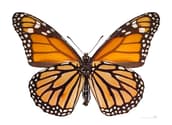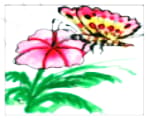Life of Honeybees
Life of Honeybees: Overview
This Topic covers sub-topics such as Bee Stings, Honey Bee Hive, Flower Nectar, Castes of Honey Bees, Honey Bee Eggs, Communication in Honey Bee, Honeybee Colony, Social Behaviour of Honeybees and, Relation of Honeybee with Litchi Trees
Important Questions on Life of Honeybees
What do you understand by caste system in honey bee ?
Which insects live in colonies?
Honeybee lives in colonies.
Fill the correct word in the blank.
(nectar, rose, flowers, suhanjana)
Honeybees and butterflies suck _____ from flowers.
Which insects have well organized system and live in the colonies?
Honey bees live within colonies.
Look at the picture given below and answer the following question:

Name this animal: _____
Ramu, a naughty boy, threw a stone on a bee hive. What might have happened then? Think. Is it correct to do so? Why? Think.
One day, Ramu saw a honey beehive on a tree in his field. He wants to know more about it. What questions might have Ramu asked his father.
Look at the picture and fill in the blank.

Butterfly has a proboscis to suck _____ of the flower.
Name the following with the help of missing letters from the bracket:
Sweet juice is found in flowers. (Complete this N_c_a_)If there were no flowers, how would it affect the lives of wasps and moths?
Unscramble the word ESOTIQUSOM using the given hint:
It is an insect that has a long and pointed tube attached to its mouth.
A paste of baking soda is used for _____.
Name the following.
An insect having sucking type of mouthparts:_____
We obtain this from honey bees.
Bees and butterflies feed on
Bees produce wax which is used to seal their cells.
Bees, hornets and wasps are _____ (social/alone) insects.
